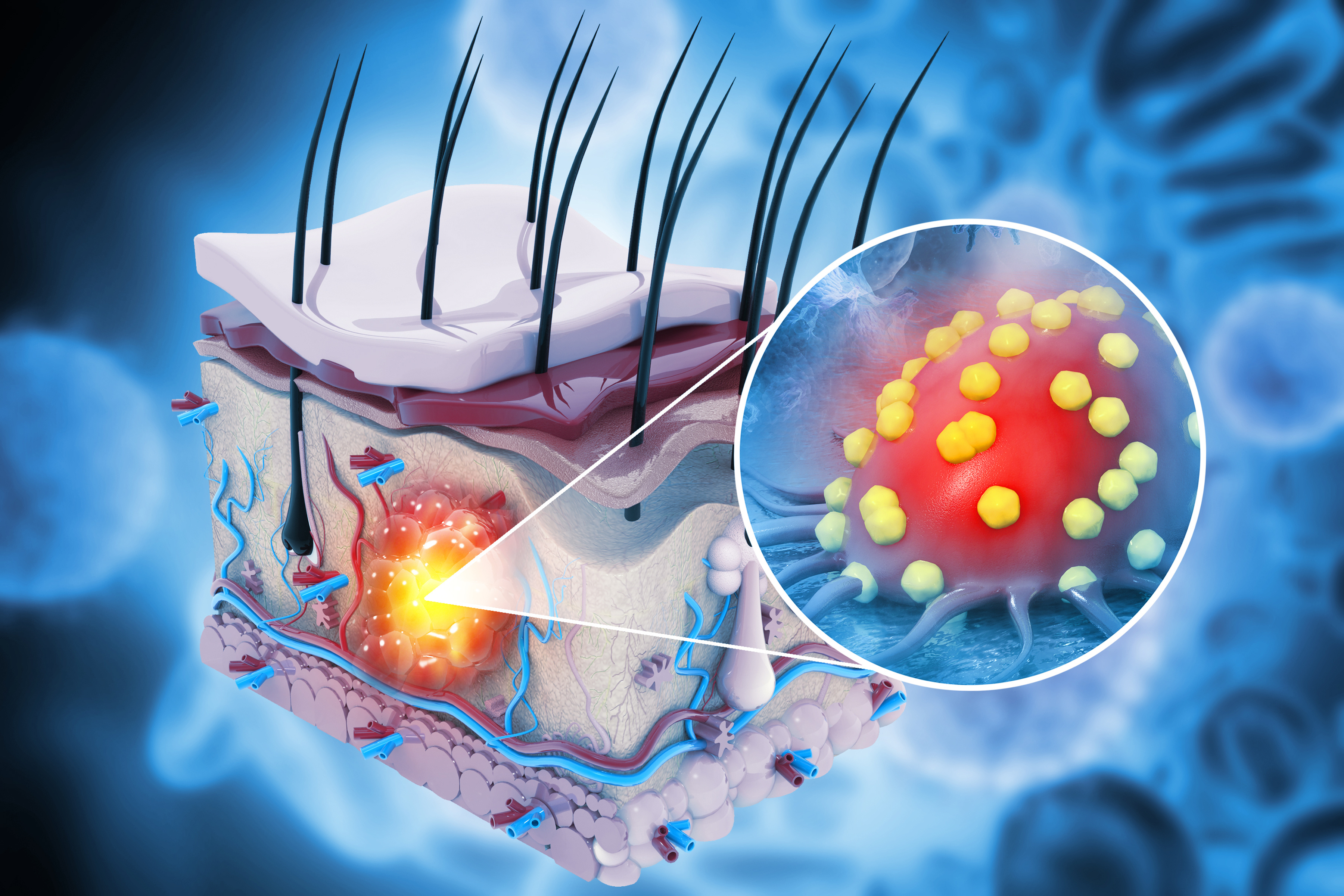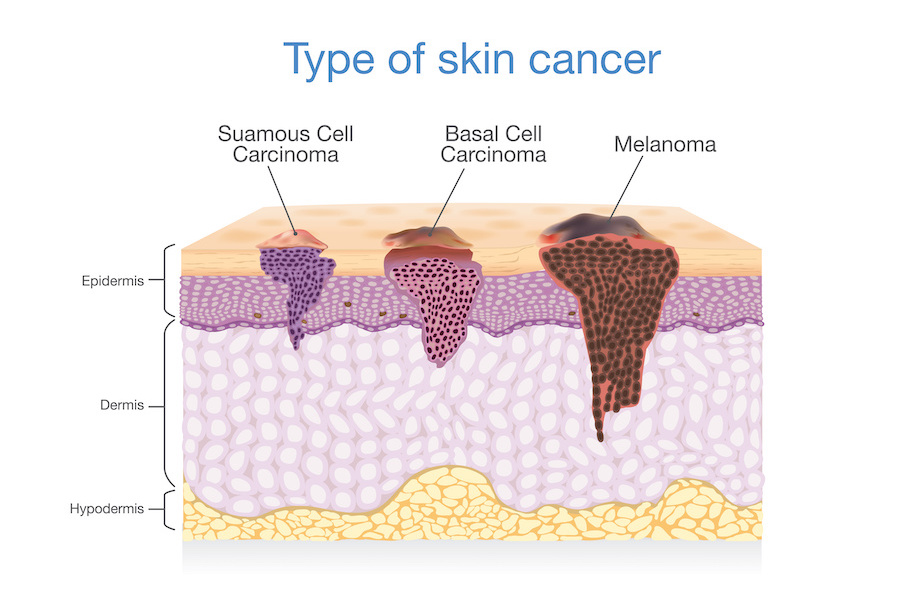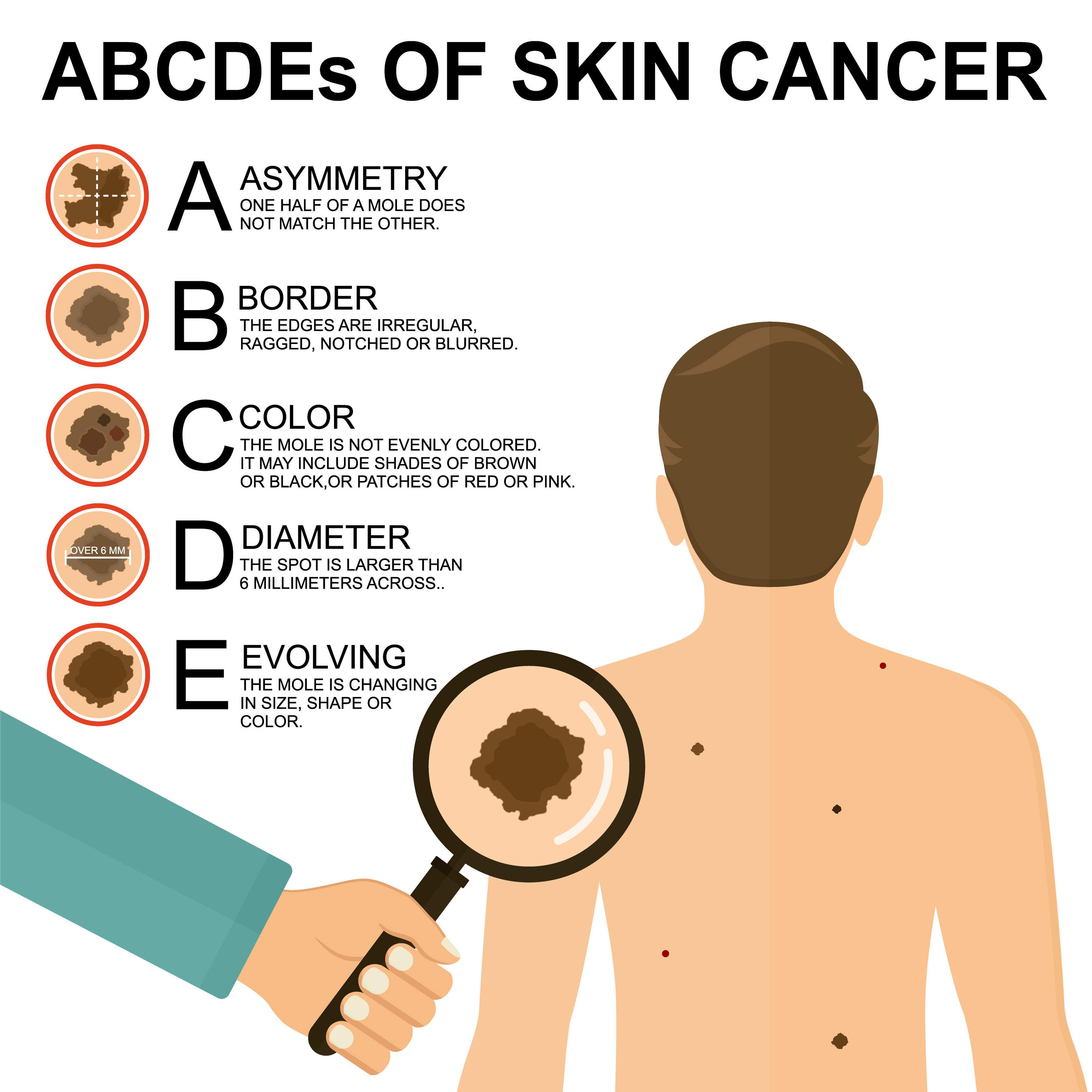Skin Cancer

Understanding Skin Cancer
Skin cancer is a disease that happens when skin cells grow in a way that isn’t normal. Spending too much time in the sun or using tanning beds can increase your risk of skin cancer.
Skin cancer is the most common type of cancer in the United States (U.S.), but when caught early, it can be treated easily.
Skin Cancer can happen to anyone, no matter the skin color. It usually happens in areas exposed to sun – like the face, arms, neck and hands. But it can also happen in areas that are rarely exposed to sunlight, like the palms, under the nails, or even in private areas.
Key Facts About Skin Cancer:
- Skin cancer is the most common cancer.
- More people in the U.S. get skin cancer each year than any other cancer type.
- Melanoma, a type of skin cancer, is rare but causes most skin cancer deaths.
- If caught early, melanoma can be cured 99% of the time.
Types of Skin Cancer

There are three main types of skin cancer:
- Basal cell carcinoma is the most common type. It may look like a shiny bump or a flat, brown scar.
- Squamous cell carcinoma looks like a rough, red patch, an open sore, or a wart-like growth that may bleed.
- Melanoma is the most serious type. It often looks like an uneven area that changes in size, shape, or color and may itch or bleed.
Signs of Skin Cancer
- New or changing growth, spot, or bump.
- A sore that bleeds and doesn't heal after several weeks.
- Rough or scaly red patch that bleeds or crusts.
- A wart-like growth
- A mole that changes size, shape, or color and has irregular borders.
Causes of Skin Cancer
- Sun exposure and tanning beds: Ultraviolet (UV) radiation from the sun can damage the skin. Tanning beds also use UV light.
- Exposure to harmful chemicals: Exposure to chemicals like arsenic and petroleum products increases the risk of developing skin cancer.
- Smoking: Increases the chances of getting a type of skin cancer called squamous cell carcinoma, especially on the lips.
- Weak immune system: If the immune system is weak, there is a higher chance of getting skin cancer.
- Human Papillomavirus (HPV) infection: HPV is a virus that can cause skin cancer around the genital area and under the nails.
Skin Cancer Risk Factors
Skin cancer risk factors include:
- Spending too much time in the sun without protection or sunscreen.
- Fair skin tone, blonde or red hair, or blue or green eyes. Individuals with these characteristics have less melanin, which means less natural protection from the sun.
- Skin type that burns or reddens easily in the sun.
- Multiple sunburns, especially during childhood.
- A weakened immune system due to illness or medication.
- Radiation treatment for skin conditions like eczema or acne.
- Using indoor tanning services before the age of 35.
- Past incidence of skin cancer increases the chance of it developing again.
Preventing and Detecting Skin Cancer
You can prevent most skin cancers by protecting yourself from the sun. To lower your risk of skin cancer, take the following steps:
- Wear sunscreen. Always wear broad-spectrum sunscreen (SPF 30 or higher), even on cloudy days and in the winter. Use lip balm with sunscreen.
- Avoid the sun at peak times, especially during the middle of the day between 10 a.m. and 4 p.m.
- Cover up when in the sun. Wear a hat with a wide brim, sunglasses, and a long-sleeved shirt. For extra protection, choose clothes made with fabric that blocks ultraviolet rays.
- Never use tanning beds.

Follow the ABCDE rules to examine moles
Skin cancer is easiest to treat when caught early. Check your skin regularly to find changes before they become serious.
- Do a self-check: Check your skin once a month using a mirror. The best time to check is after a bath or a shower. Look for new spots or changes in size, color, or shape of an existing spot.
- See a skin doctor: A doctor can check your skin for unusual spots.
- Get a skin test: When skin doctors find a spot that looks unusual, they may remove a small piece to test for cancer, which is known as a skin biopsy.
Resources
There are many reliable online resources to help you learn more about skin cancer. Whether you are looking for screening information, preventative measures, or other information about skin cancer, our health educators are here to provide you with the support and guidance you need. Send your queries to coe@unmc.edu.